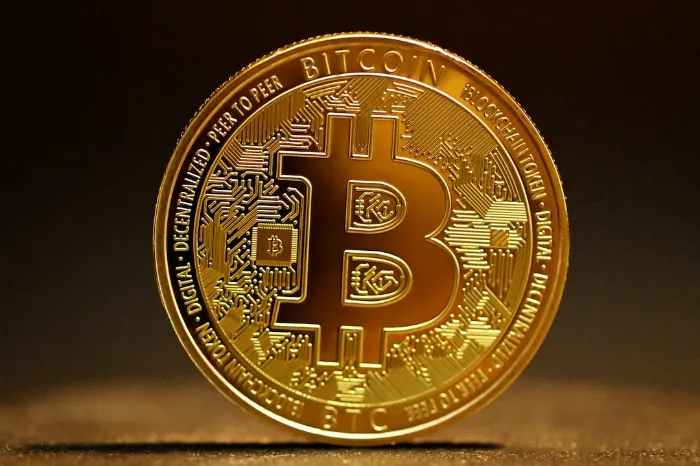Will Central Bank Digital Currencies (CBDCs) destroy, threaten, or have negative impact on Bitcoin?

By Leroy A. Brown
Will central bank digital currencies (CBDCs) threaten, end, or have a negative impact on Bitcoin?
The answer is maybe if there is an agenda to get rid of Bitcoin. Otherwise, Bitcoin may be here to stay and continue to play the role of facilitating financial transactions.
The collapse of the FTX cryptocurrency exchange and the lawsuit against Ripple by the U.S. Securities and Exchange Commission (SEC) show signs of disruption in the cryptocurrency market.
Nevertheless, cryptocurrencies are still around, and buying and selling are occurring on cryptocurrency exchanges and through brokerages.
What are central bank digital currencies (CBDCs)?
Central bank digital currencies (CBDCs) are digital money with the same value as the fiat currency in that country.
It is issued by the central bank in that country.
For example, The Bahamas was the first country in the world to implement its central bank digital currency (CBDC) called the Sand Dollar.
The Sand Dollar was issued by the central bank of The Bahamas.
For example, $1Sand Dollar is equal to $1Bahamian Dollar.
What is Bitcoin (BTC)?
Bitcoin is a cryptocurrency that was started in 2009 and is explicitly used for payment transactions.
Bitcoin is thought to be created by an individual named Satoshi Nakamoto.
Bitcoin is the first cryptocurrency created and is the largest by market capitalization.
What are the similarities and differences between CBDCs and Bitcoin?
Some of the similarities between CBDCs and Bitcoin are:
1.
CBDCs and Bitcoin are both digital currencies.
2
CBDCs and Bitcoin are intended for use in financial transactions.
3
CBDCs and Bitcoin need to be on a network in order to do online transactions.
Some of the differences between Bitcoin and CBDCs are:
1
CBDCs are centralized, and Bitcoin is decentralized.
2
Central banks have control over CBDCs, while Bitcoin is controlled by its users.
3
The value of a CBDC is the same as the value of its respective fiat currency. In comparison, the value of Bitcoin fluctuates.
So will CBDCs threaten, end, or have a negative impact on Bitcoin?
Let’s look at several things and then make a conclusion.
1
Bitcoin is widely used worldwide, and many individuals are comfortable with it.
Only a few countries have implemented CBDCs, and only some have a substantial number of people using them.
For example, Nigeria, the second country to implement its CBDC, was reported to have to restrict cash use in order to have more of its citizens use its CBDC called eNaira.
2
While Bitcoin is decentralized and controlled by its users, CBDCs are centralized and controlled by the central banks.
Consequently, many are concerned about the central banks' absolute control over their digital money, i.e., CBDCs.
3
Some individuals have said that CBDCs may compete with Bitcoin and thus reduce demand for it.
However, there have been many cryptocurrencies since Bitcoin was created, and Bitcoin is still the largest by market capitalization.
Also, because Bitcoin is decentralized and offers privacy to its users, while CBDCs are the opposite, there are already concerns and reluctance to use CBDCs.
4
Regulations may be created by governments that may have a negative impact on Bitcoin and other crypto tokens.
So, will Bitcoin be destroyed by CBDCs?
If there are deliberate efforts to destroy Bitcoin, then it is possible.
Nevertheless, Bitcoin still plays a role today in facilitating financial transactions.
Also, more people appear to trust Bitcoin more than they do CBDCs.
Additionally, as financial transactions become more digital, there is a global shift towards cryptocurrencies and the blockchain.
For example, the world’s cross-border financial system is already switching from SWIFT to ISO 20022, which uses cryptocurrencies as part of the process.
Currently, some cryptocurrencies have been ISO 20022 approved.
The cryptocurrencies reported to be ISO 20022 compliant thus far are:
Algorand (ALGO)
IOTA (MIOTA)
Hedera (HBAR)
Ripple (XRP)
Quant (QNT)
Stellar (XLM)
XDC Network (XDC)
Bitcoin is not included now but may be included in the future.
As the world changes
There have never been so many opportunities
To create wealth…
To understand more and discover how to
Access Wealth in CBDCs, Cryptocurrency, the Futures, and Stock Markets HERE.
